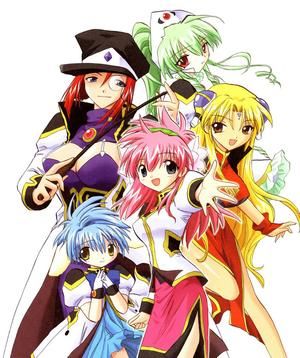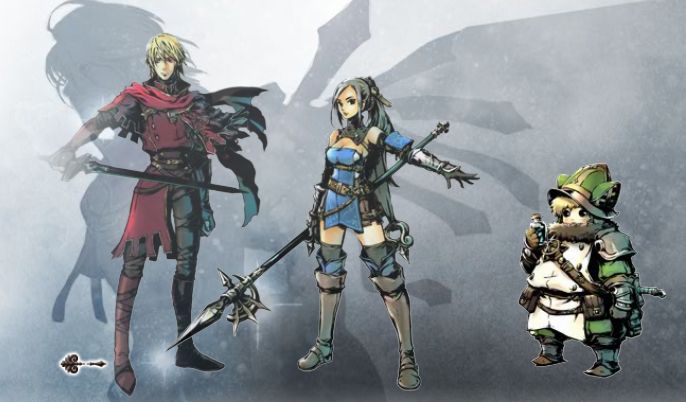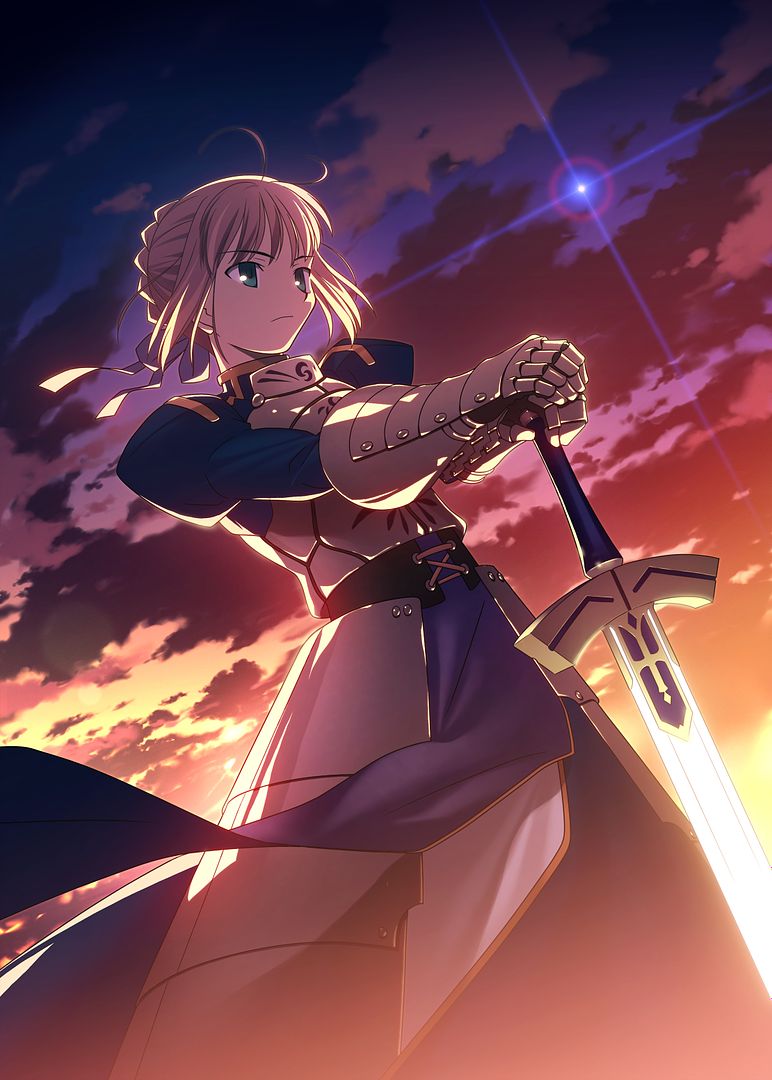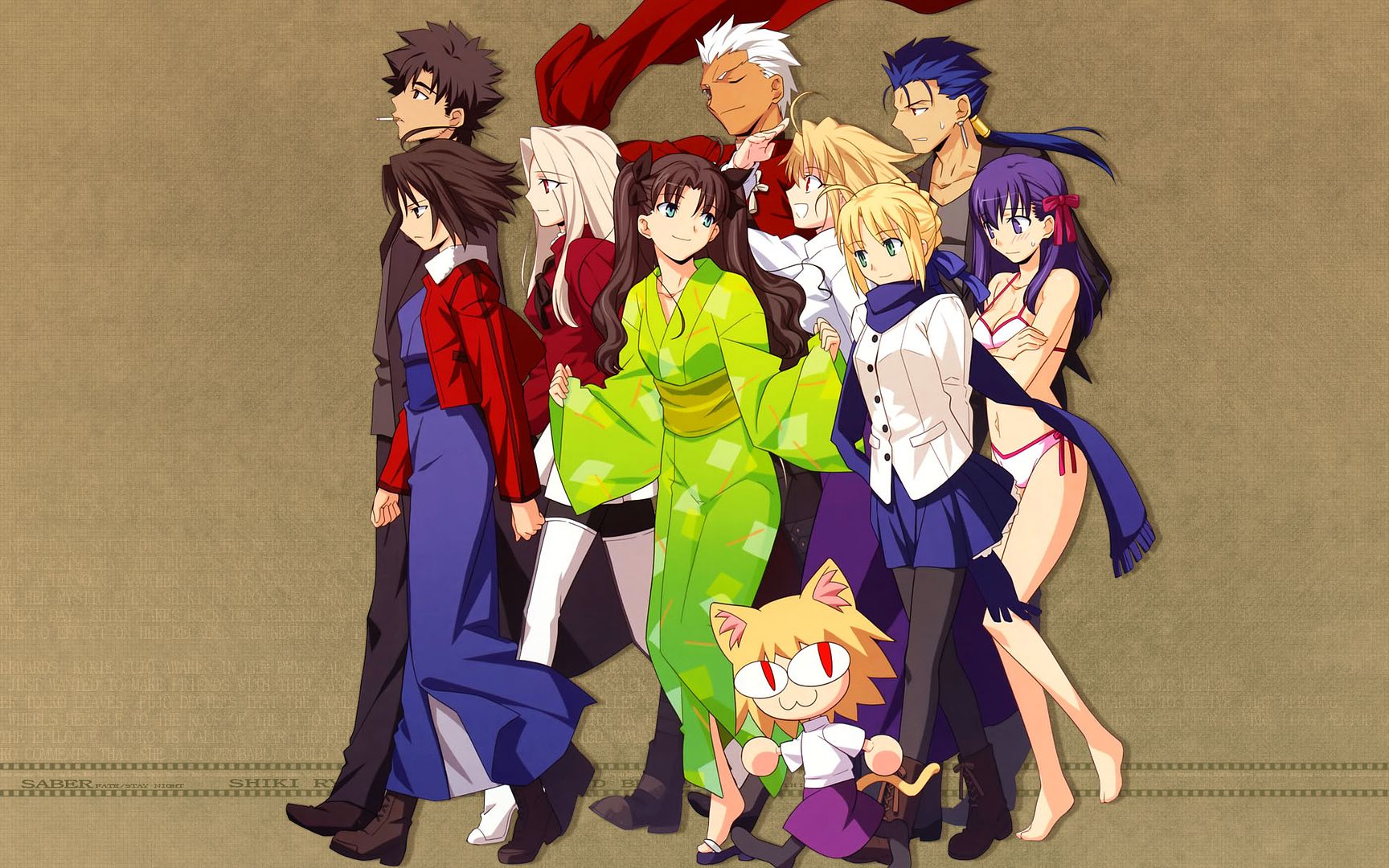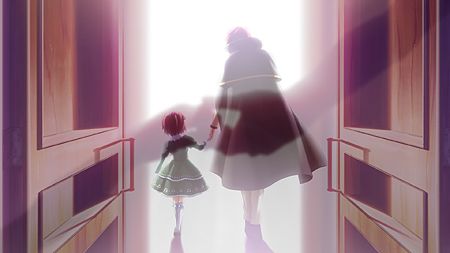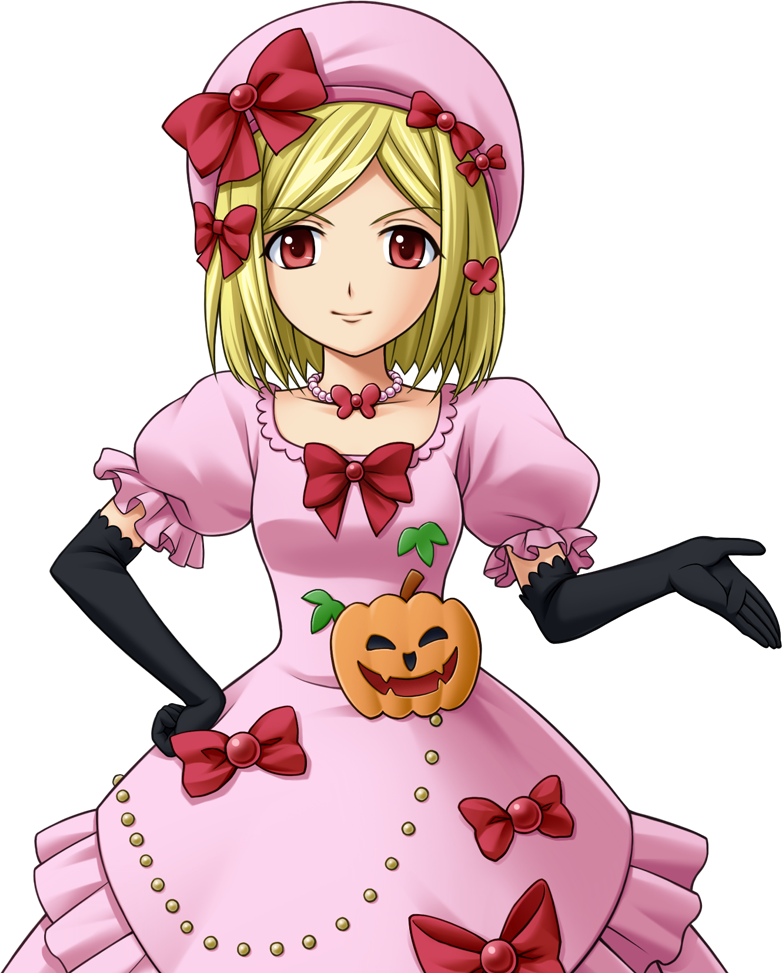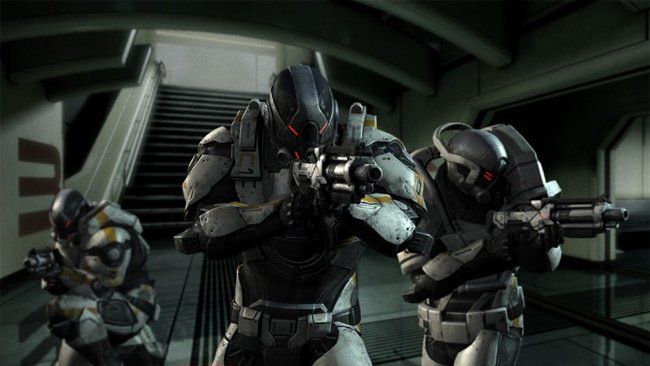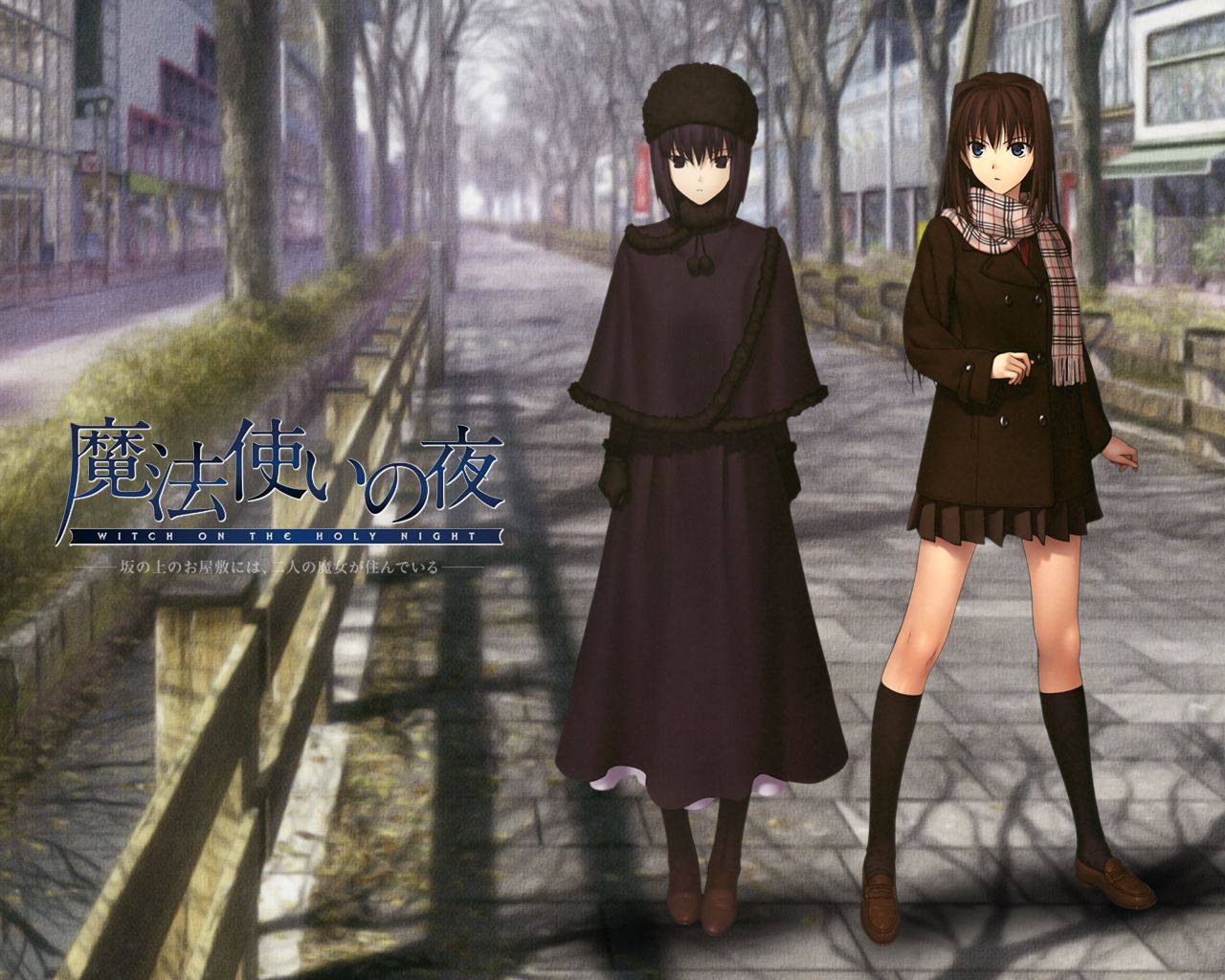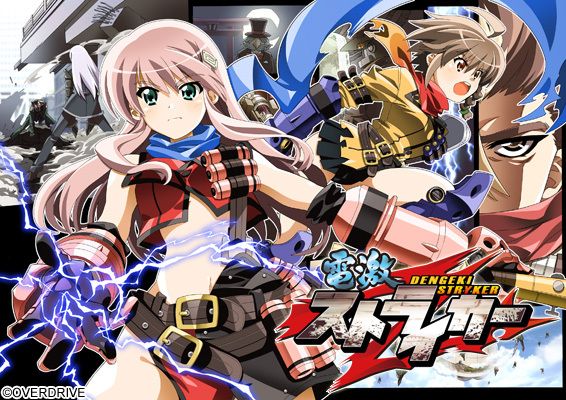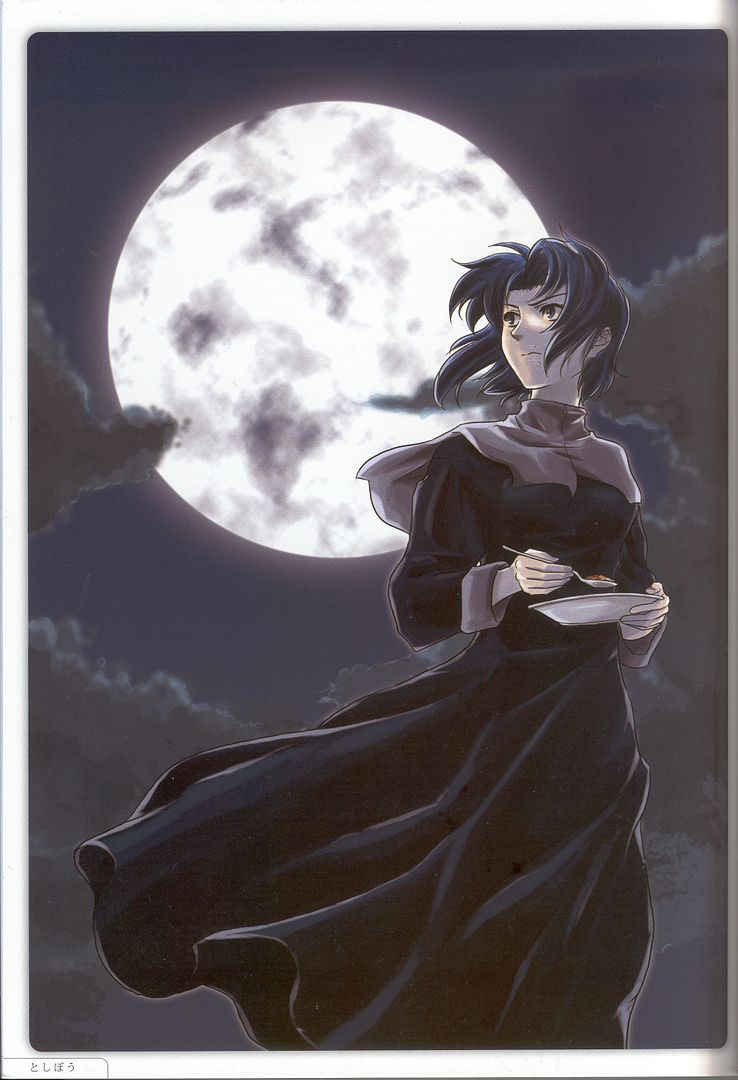![]()
![hisuicon]() I would like to proudly announce that recently I finished off two video games in one day. Although I started them on different days coincidence made it so I finished Galaxy Angel and Radiant Historia at the same time. Finishing both games back to back made me realize one thing. I would easily recommend both games so the next statement comes from someone who was thoroughly satisfied with his gaming experience (although if the last mission of Galaxy Angel were not an escort mission I would be happier.) Both games are sort of thin when it comes to their characters. They were enjoyable but in realized that had these character been from an anime or manga I would have considered them much weaker. We simply accept a smaller amount of characterization in video games than we do from any other medium of entertainment.
I would like to proudly announce that recently I finished off two video games in one day. Although I started them on different days coincidence made it so I finished Galaxy Angel and Radiant Historia at the same time. Finishing both games back to back made me realize one thing. I would easily recommend both games so the next statement comes from someone who was thoroughly satisfied with his gaming experience (although if the last mission of Galaxy Angel were not an escort mission I would be happier.) Both games are sort of thin when it comes to their characters. They were enjoyable but in realized that had these character been from an anime or manga I would have considered them much weaker. We simply accept a smaller amount of characterization in video games than we do from any other medium of entertainment.
![]()
![narutaki]() We all know that video games have changed and evolved quite a bit over the years, but its been in many different directions. Even excluding the change in graphics capability and the potential length of games, plenty of growth in how people perceive games and how the creators make them has happened. They are a new and special type of storytelling, they are art to some and entertainment to many, and by any standard they have become integrated into the fabric of people’s lives on some level. But let’s go back to the storytelling element, certainly there have always been goals and structures for games, but we’ve seen epic stories come to life, too. And things just seem to grow more complex, with bigger ideas, and greater casts. But how characters develop in the story and through the player is still another idea all together.
We all know that video games have changed and evolved quite a bit over the years, but its been in many different directions. Even excluding the change in graphics capability and the potential length of games, plenty of growth in how people perceive games and how the creators make them has happened. They are a new and special type of storytelling, they are art to some and entertainment to many, and by any standard they have become integrated into the fabric of people’s lives on some level. But let’s go back to the storytelling element, certainly there have always been goals and structures for games, but we’ve seen epic stories come to life, too. And things just seem to grow more complex, with bigger ideas, and greater casts. But how characters develop in the story and through the player is still another idea all together.
![hisuicon]() Even as a huge Galaxy Angel fan I am the first to admit that the girls from Galaxy Angel seem like they come from a cynical boardroom meeting of Broccoli executives trying to cast their net as wide as possible. It that sense they are very reliant on their archetypal personalities. But when you interact with them in the game they come more alive despite being somewhat defined by simple personality quirks. When you put those same characters in the Galaxy Angel manga it is much more obvious what simple characters they are. I have to wonder if that is why so many anime and video game adaptions are so reviled. When they are adapted you see exactly how much the narrative and characters relied on interactivity to fill in the gaps. I many of the same ways Radiant Historia has a very intriguing plot involving time travel and politics but the characters equally broad stereotypes. Many of the characters personalities and back stories are only really learned through hunting down optional quests and what could be argued as the main romance in the game can be missed entirely. It can be argued that even with those little details that you can hunt down there are still only half as fleshed out as rich as even a shallowly explored anime or manga character. Since you have to hunt down these side missions and little asides it gives them a more rewarding feel. You attach more significance to finding out this information when you find it on your own.
Even as a huge Galaxy Angel fan I am the first to admit that the girls from Galaxy Angel seem like they come from a cynical boardroom meeting of Broccoli executives trying to cast their net as wide as possible. It that sense they are very reliant on their archetypal personalities. But when you interact with them in the game they come more alive despite being somewhat defined by simple personality quirks. When you put those same characters in the Galaxy Angel manga it is much more obvious what simple characters they are. I have to wonder if that is why so many anime and video game adaptions are so reviled. When they are adapted you see exactly how much the narrative and characters relied on interactivity to fill in the gaps. I many of the same ways Radiant Historia has a very intriguing plot involving time travel and politics but the characters equally broad stereotypes. Many of the characters personalities and back stories are only really learned through hunting down optional quests and what could be argued as the main romance in the game can be missed entirely. It can be argued that even with those little details that you can hunt down there are still only half as fleshed out as rich as even a shallowly explored anime or manga character. Since you have to hunt down these side missions and little asides it gives them a more rewarding feel. You attach more significance to finding out this information when you find it on your own.
![]()
![narutaki]() My own experience with video games stems mainly from RPGs through the 90′s (okay, and Professor Layton of late) so those are really my core for talking about character. One of my (and many other’s) best-loved characters, Link from the Legend of Zelda is someone I love because of the adventures I go on as him; in the beginning he was your vessel and you got out of him whatever you put in. But as the game’s started to expand, so did the character. He has friends, motivations, and a past depending on what game you’re playing. Despite A Link to the Past being my favorite iteration, it is impossible to say that Link was all that fleshed out as a character. What he is thinking or feeling that is still up to how you interpret him and what you want out of his actions (or your actions). I would say Link has the most personality in The Wind Waker; I’d describe him as rather jaunty in that title, and subsequent ones in that world. But if you recall The Wind Waker had a ton of backlash initially because it didn’t look as serious as people had hoped when riding on the coat-tails of Ocarina. Who we had come to believe Link was being reinterpreted.
My own experience with video games stems mainly from RPGs through the 90′s (okay, and Professor Layton of late) so those are really my core for talking about character. One of my (and many other’s) best-loved characters, Link from the Legend of Zelda is someone I love because of the adventures I go on as him; in the beginning he was your vessel and you got out of him whatever you put in. But as the game’s started to expand, so did the character. He has friends, motivations, and a past depending on what game you’re playing. Despite A Link to the Past being my favorite iteration, it is impossible to say that Link was all that fleshed out as a character. What he is thinking or feeling that is still up to how you interpret him and what you want out of his actions (or your actions). I would say Link has the most personality in The Wind Waker; I’d describe him as rather jaunty in that title, and subsequent ones in that world. But if you recall The Wind Waker had a ton of backlash initially because it didn’t look as serious as people had hoped when riding on the coat-tails of Ocarina. Who we had come to believe Link was being reinterpreted.
![]()
![hisuicon]() The greatest example of how much the interactive experience fills in gaps is any game with a silent protagonist. While this is very prevalent in RPGs it can also bee seen in almost every genre of game. This character is almost always a tabula rasa with a majority of the dialog provided supporting characters, a few characters reacting to unsaid lines, or the protagonist’s minimal dialog. One one hand this allow almost complete self insertion or visualization. The player is either able to imagine themselves as the main character or make a personality for the character out of whole cloth. This explains the popularity of characters like Master Chief and Link despite the fact that they are hardly verbose. Many RPGs so far as to have you name the character so that you truly can make the character your own. In and anime or manga a silent protagonist is almost utterly unforgivable. Even some of the most closemouthed heroes have their moments to shine with memorable lines and stories.
The greatest example of how much the interactive experience fills in gaps is any game with a silent protagonist. While this is very prevalent in RPGs it can also bee seen in almost every genre of game. This character is almost always a tabula rasa with a majority of the dialog provided supporting characters, a few characters reacting to unsaid lines, or the protagonist’s minimal dialog. One one hand this allow almost complete self insertion or visualization. The player is either able to imagine themselves as the main character or make a personality for the character out of whole cloth. This explains the popularity of characters like Master Chief and Link despite the fact that they are hardly verbose. Many RPGs so far as to have you name the character so that you truly can make the character your own. In and anime or manga a silent protagonist is almost utterly unforgivable. Even some of the most closemouthed heroes have their moments to shine with memorable lines and stories.
![narutaki]() All forms of story that I enjoy, I want to be engrossed in, feel connected to it, be apart of. And that is the key, in a video game you are connected immediately because you are playing, you are in control. If you lose that inactivity, you’ve lost everything. But I don’t think that means you must refrain from creating fleshed out characters apart from the player. A title like Tales of Symphonia comes to mind for its little conversations that happen while traveling the world map giving everyone their own quirks. It isn’t really about uniqueness as much as the game telling you a bit of who they are. The danger zone seems to occur when a pre-existing character becomes too fleshed out at the expense of the experience, the reactions to the latest Metroid game for example. In any case, it is a balancing act. Do I want to know more, yes, but do I need to know more to think a game is excellent, probably not.
All forms of story that I enjoy, I want to be engrossed in, feel connected to it, be apart of. And that is the key, in a video game you are connected immediately because you are playing, you are in control. If you lose that inactivity, you’ve lost everything. But I don’t think that means you must refrain from creating fleshed out characters apart from the player. A title like Tales of Symphonia comes to mind for its little conversations that happen while traveling the world map giving everyone their own quirks. It isn’t really about uniqueness as much as the game telling you a bit of who they are. The danger zone seems to occur when a pre-existing character becomes too fleshed out at the expense of the experience, the reactions to the latest Metroid game for example. In any case, it is a balancing act. Do I want to know more, yes, but do I need to know more to think a game is excellent, probably not.
![]()
![hisuicon]() As much as I might seem to be very critical of video games I must point out that I often play and enjoy the stories and characters of many a video game. Every medium has its strengths and weakness as well as narrative techniques. The way that a book, graphic novel, movie, or game attach us to someone vary on how we interact with it. The level to which things are given to us and how much we have to fill in for ourselves changes our expectations and reactions to each medium. Even silent blank slate characters can connect deeply to an audience. Crono and Gordon Freeman are beloved characters making many a top ten list. Fighting game characters and the entire cast of the Touhou Project games are iconic despite the fact that we only learn a sliver of information about the cast in their games. Games like Mass Effect and the Ultima series are famous for their stories and characters. This is less a condemnation and more of an examination of the medium.
As much as I might seem to be very critical of video games I must point out that I often play and enjoy the stories and characters of many a video game. Every medium has its strengths and weakness as well as narrative techniques. The way that a book, graphic novel, movie, or game attach us to someone vary on how we interact with it. The level to which things are given to us and how much we have to fill in for ourselves changes our expectations and reactions to each medium. Even silent blank slate characters can connect deeply to an audience. Crono and Gordon Freeman are beloved characters making many a top ten list. Fighting game characters and the entire cast of the Touhou Project games are iconic despite the fact that we only learn a sliver of information about the cast in their games. Games like Mass Effect and the Ultima series are famous for their stories and characters. This is less a condemnation and more of an examination of the medium.
![narutaki]() When I think about video game’s many fanbases, two passionate ones came to mind in regards to character development: Touhou fandom and the general fighting game community. Besides being very vocal and large groups, both of these territories have games where much of the story, lore, and characters are filled out by the fans themselves based on hints, small details, and of course character design provided by the actual games. Many times supplemental material is created later (or never), to varying degrees of success, but in the meantime plenty of discussions and fan-fiction go on. Of course these communities originated out of playing and enjoying the games, but have since grown to include vast other topics. It’s that interactivity that seems to allow characters to function at a different level in video games. The blanks don’t feel blank when you are playing.
When I think about video game’s many fanbases, two passionate ones came to mind in regards to character development: Touhou fandom and the general fighting game community. Besides being very vocal and large groups, both of these territories have games where much of the story, lore, and characters are filled out by the fans themselves based on hints, small details, and of course character design provided by the actual games. Many times supplemental material is created later (or never), to varying degrees of success, but in the meantime plenty of discussions and fan-fiction go on. Of course these communities originated out of playing and enjoying the games, but have since grown to include vast other topics. It’s that interactivity that seems to allow characters to function at a different level in video games. The blanks don’t feel blank when you are playing.
Filed under:
Character Studies,
Editorials,
Fandom,
Video Games,
Visual Novels Tagged:
Galaxy Angel,
Metroid: Other M,
Professor Layton,
Radiant Historia,
Tales of Symphonia,
The Legend of Zelda,
Touhou ![]()
![]()
![]()
![]()
![]()
![]()
![]()
![]()
![]() With only a little over a month until the release of last chapter of Umineko no Naku Koro ni I have to say I am giddy with anticipation to see the answers to the questions we have had since 2007. But recently 07th Expansion has released a slew of announcements that are equally exciting. They are obviously striking while the iron is hot and cashing in on the finale of the game but that is fine by me.
With only a little over a month until the release of last chapter of Umineko no Naku Koro ni I have to say I am giddy with anticipation to see the answers to the questions we have had since 2007. But recently 07th Expansion has released a slew of announcements that are equally exciting. They are obviously striking while the iron is hot and cashing in on the finale of the game but that is fine by me.
![]() They started off the announcement blitz with the fact that Alchemist was porting the game over to the PS3. This means updated graphics and CG and voice acting with the cast from the anime while at the same time keeping all the original story and music. In other words exactly what you would want them to change while keeping everything you loved about the original. The previews only make me salivate more. There is a group trying to get the PS3 version localized. I am not sure how effective they will be but I figured I would mention them here because I would love to see them succeed.
They started off the announcement blitz with the fact that Alchemist was porting the game over to the PS3. This means updated graphics and CG and voice acting with the cast from the anime while at the same time keeping all the original story and music. In other words exactly what you would want them to change while keeping everything you loved about the original. The previews only make me salivate more. There is a group trying to get the PS3 version localized. I am not sure how effective they will be but I figured I would mention them here because I would love to see them succeed.![]() That being said if you want to play the original games with a translation today you can download the first four games by an authorized online download service and get the translation from the Witch Hunt. As the Witch Hunt translation is officially sanctioned it can be used guilt free as long as you use a legitimate copy of the original Japanese game.
That being said if you want to play the original games with a translation today you can download the first four games by an authorized online download service and get the translation from the Witch Hunt. As the Witch Hunt translation is officially sanctioned it can be used guilt free as long as you use a legitimate copy of the original Japanese game.![]() The biggest announcements came just this weekend with the title of last game is Twilight of the Golden Witch. But 07th Expansion also announced the along with the 8th game they would be selling Umineko no Naku Koro ni Tsubasa which is a collection of all independently released Umineko side stories in one bundle. Those will be very nice to get all in one place and we might finally get a translation of Arigato For 556.
The biggest announcements came just this weekend with the title of last game is Twilight of the Golden Witch. But 07th Expansion also announced the along with the 8th game they would be selling Umineko no Naku Koro ni Tsubasa which is a collection of all independently released Umineko side stories in one bundle. Those will be very nice to get all in one place and we might finally get a translation of Arigato For 556.
![]() The biggest surprise had to be the announcement of the Umineko fighting game Ougon Musou Kyoku. It looks like a fairly nifty little 2D fighting game with tag team play from the previews. I am always amazed how much information about game play fighting game fans get from a few screen shots but such is fighting game fandom. Hopefully this will play well so this can turn in a Melty Blood style series. Goodness knows there are enough Umineko characters to fill up several sequels without breaking a sweat. The real question is are you secure enough in your sexuality to main the bisexually ambiguous Ronove?
The biggest surprise had to be the announcement of the Umineko fighting game Ougon Musou Kyoku. It looks like a fairly nifty little 2D fighting game with tag team play from the previews. I am always amazed how much information about game play fighting game fans get from a few screen shots but such is fighting game fandom. Hopefully this will play well so this can turn in a Melty Blood style series. Goodness knows there are enough Umineko characters to fill up several sequels without breaking a sweat. The real question is are you secure enough in your sexuality to main the bisexually ambiguous Ronove?![]() I guess the main purpose of the post is to shake out some of the excessive energy I have in anticipation of the finale of the series. In many ways the final denouement is what makes or breaks most mystery series so I am curious to see how it all get wrapped up. No matter how good or bad the ending is I have enjoyed the ride to this point and look forward to whatever in next in the When They Cry series. This conclusion mostly determines if this series get a mild recommendation or thunderous applause.
I guess the main purpose of the post is to shake out some of the excessive energy I have in anticipation of the finale of the series. In many ways the final denouement is what makes or breaks most mystery series so I am curious to see how it all get wrapped up. No matter how good or bad the ending is I have enjoyed the ride to this point and look forward to whatever in next in the When They Cry series. This conclusion mostly determines if this series get a mild recommendation or thunderous applause.
























